Episodes
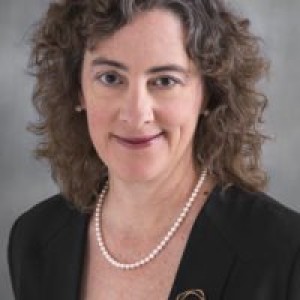
Monday Jul 08, 2019
Episode 067 - Maureen Condic, part III
Monday Jul 08, 2019
Monday Jul 08, 2019
-
The conversation involving Dr. Condic, Dr. Giesting and Schmitt turned to the complexities of the nation’s debate about abortion. That debate engages a mix of biological facts (which may or may not be probed in the full context of updated knowledge), personal experiences, and deeply held principles, positions, and emotions including authentic sympathy for the circumstances in which pregnant women find themselves. Although providing scientific insights is a crucial advancement of the debate because people deserve to have comprehensive information, the laying out of certain biological facts alone will not necessarily change minds, Condic said.
-
In many cases, much of the public presentation of the abortion controversy dividing people is manufactured, but there is room for honest discussion on particular grounds. We each can play a part in adding to human understandings in this controversy. People evolve their judgments on the wide scope of the debate incrementally over time.
-
But the search for a full overview is complicated; indeed, Dr. Condic referred to difficulties she and her brother Samuel Condic encountered (different vocabularies, etc.) in compiling their book Human Embryos, Human Beings. The book aims to bring together philosophical and biological insights about human life at its beginning. In short, the abortion debate requires us to spend more time in listening to each other, asking questions, probing the basis of people’s stances, and less time in simply lecturing, she said.
-
Paul talked about his experience with identical twins in his family. Twinning is a complex arena for understanding “who you are,” raising core questions with biological and philosophical implications. Our discussion around the microphone extended to research on the topics of compaction and chimeras. Condic has written a book that delves into the complexities. Untangling Twinning is scheduled for publication this summer.
-
There are also biological phenomena complicating an understanding of our human nature in sexual terms. There can be complex factors differentiating between one’s genetic sex and one’s hormonal sex, Condic said. A very small segment of the population has genetically compound sexual identities. Intersex disorders can occur in a variety of ways, although in the vast majority of cases questions of a person’s gender identity are not grounded in physical causes, Condic said. Studies in some areas raise questions within the LGBTQ community itself. Among many, endeavors focusing on a “gay gene” that would undergird a statement that “I was born this way” have been diminished by a view that gender identity is fluid or is driven by non-genetic factors.

Monday Jul 01, 2019
Episode 066 - Maureen Condic, part II
Monday Jul 01, 2019
Monday Jul 01, 2019
- Our discussion of totipotent, pluripotent, and plenipotent stem cells helped to clarify a complex subject of great importance to many people, such as those who suffer from diseases awaiting therapies capturing the power of these cells. Dr. Maureen Condic, as a pioneer in this field, contributed insights in 2013 by developing the concept of plenipotent cells. See her journal article.
- Our discussion also led to a sense of wonderment about the ability of cells to follow such complex paths of development, starting with the organism created when sperm and egg combine. The product and the process can easily be dismissed as a simple mass of cells, or one can recall Psalm 139:14, “I am fearfully and wonderfully made.” In this episode, we discussed how it seems viscerally sad that the amazement, which is itself so full of potential, can be lost in everyday discussions of human life.
- Related to this, Dr. Condic pointed out that there is an unfortunate lack of philosophical education among many scientists. Here is a blog post from Scientific American discussing synergies between science and philosophy—synergies which are at the core of this podcast’s mission.
- We discussed the relevance of the philosophical concepts of form and substance. Here’s a web page explaining those concepts.
- This book, written by Dr. Condic and her brother sounds like it is a rare and valuable synthesis of philosophical and biological insights about life: Human Embryos, Human Beings. She noted in our episode that such an extended, on-point synthesis is rare for various reasons, including the need to clarify vocabulary used on both sides of the dialogue, avoiding the risk that we will talk past each other.
- She has written another book, this one examining the biological and philosophical issues around human twinning, Untangling Twinning. It is scheduled for publication in the summer of 2019. For now, a computer search using this title yielded, as one of the first finds, a copy of a news release written by TSSM podcast co-host Bill Schmitt and posted at classicaltheism.com.

Monday Jun 24, 2019
Episode 065 - Maureen Condic, part I
Monday Jun 24, 2019
Monday Jun 24, 2019
- University of Utah’s information page for Dr. Maureen Condic. She is an Associate Professor of Neurobiology and Anatomy, with an adjunct appointment in Pediatrics. Her research focuses on the role of stem cells in development and regeneration. She has taught human embryology in the University’s Medical School for 20 years.
- See Dr. Condic’s biographical summary in the list of speakers at the Society of Catholic Scientists 2019 conference titled, “What Does It Mean to Be Human?” At the conference, this embryologist and specialist in developmental neurobiology delivered the St. Albert Award Lecture: “Human Beings are Defined by Organization.”
- Dr. Condic is the 2019 recipient of the St. Albert Award, named for Saint Albert the Great, the Catholic Church’s patron saint of natural scientists. The award is given annually to a Catholic scientist whose life and work give witness to the harmony that exists between the vocation of scientist and the life of faith. See more details about the award, including its previous recipients.
- Dr. Condic’s previous awards include the Basil O’Connor Starter Scholar Research Award, created in 1973 and presented by the March of Dimes to support a young scientist’s promising new research. The March of Dimes was established by President Franklin D. Roosevelt, initially to fight polio. Today, the foundation focuses on health problems in babies, especially premature birth, birth defects, and low birth weight. Find context for the program of research support here.
- Dr. Condic also has been the recipient of a Scholar Award for research from the McKnight Endowment Fund for Neuroscience.
- In 2018, she was appointed to the National Science Board. The NSB establishes the policies of the National Science Foundation and serves as advisor to Congress and the President.
- She is a member of the Pontifical Academy for Life, which is dedicated to promoting the Catholic Church’s consistent life ethic and supporting research in bioethics and moral theology.
- When confronted with alternative views and occasionally accused of being “brainwashed” with a pro-life stance, Dr. Condic says one must ask, what view actually makes more sense of the world? A quote from the episode: “What vision of the world actually accounts for most of the data? In my experience, it’s a Christian vision of the world, and particularly a Catholic vision of the world, that very much endorses precisely the kind of questioning mind that promotes scientific investigation….”
- Another key thought from the episode: The information generated in scientific disciplines is so huge, it forces many scientists to make their own fields of specialized inquiry “narrower and narrower.” Also, “they have no time” to give deep consideration to many big questions about life, the world, and the origin of the universe. “Particularly in biology, there’s such an intoxication with success.” Individuals who are indeed brilliant and making remarkable progress for people may become confident that they can answer all the important questions.
- Starting at about the 22-minute mark in this episode, Dr. Condic tells the story of an event that changed her life and produced her commitment to public advocacy and public education.“ She saw a need to combat ignorance or oversimplification about scientific advancements and to be “an advocate for patients and knowledge and factual information.”
- Dr. Condic also provides a valuable, clear update on parts of the debate about disease treatments using embryonic stem cells as opposed to adult stem cells, with research on the latter having resulted in a huge number of clinical trials and prospects for various treatments. A major new phase of the research has moved on to the use of induced pluripotent stem cells, which do not raise the same ethical issues as embryonic cells.
- In presenting the St. Albert Award during the Society of Catholic Scientists conference, president Stephen Barr, Ph.D., pointed out Dr. Condic’s “courageous public defense, on scientific and philosophical grounds, on the human status of human embryos.”
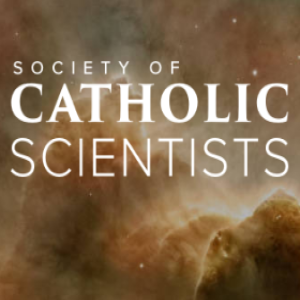
Monday Jun 17, 2019
Episode 064 - SCS 2019 Panel, part II
Monday Jun 17, 2019
Monday Jun 17, 2019
This is the second part of our panel discussion with two conference attendees, Merissa Newton, a philosophy instructor at the University of New England and Geoffrey Woollard, a cancer researcher at the University of Toronto.
[This file is vastly improved from the original version; Bill was able to provide a backup from his portable microphone.]
The individual videos of the conference talks are or will be posted soon at https://www.catholicscientists.org/ideas/theme/video-archive

Thursday Jun 13, 2019
Episode 063 - SCS 2019 Panel, part I
Thursday Jun 13, 2019
Thursday Jun 13, 2019
After laboring through some technical problems, here is our first full post-SCS Conference episode.
We had a panel discussion with two conference attendees, Merissa Newton, a philosophy instructor at the University of New England and Geoffrey Woollard, a cancer researcher at the University of Toronto.
This conference was a heady experience, and as a self-taught amateur podcaster and interviewer, I was absurdly far out of my comfort zone. Things went surprisingly well save for one critical error: I neglected to do much of any testing of my laptop and microphone before I started recording. A whole bunch of lessons I hopefully learned there... In any case, today's audio may be the worst of the conference. I had to think long and hard about whether to air this episode, or what if anything to cut. Bill had backup audio starting halfway through this episode, so feel free to skip ahead to about 17:10 to miss the problematic section.
The individual videos of the conference talks will be posted soon at https://www.catholicscientists.org/ideas/theme/video-archive
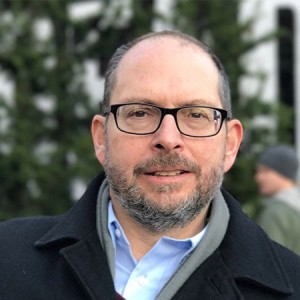
Monday Jun 03, 2019
Episode 062 - Jonathan Lunine SCS Conference Preview
Monday Jun 03, 2019
Monday Jun 03, 2019
We had more insane audio problems on this episode; Paul's audio from Zencastr was unusable. I had to record a new introduction and first question, then splice in our backup recording from Zoom.
Jonathan Lunine is a prominent planetary scientist. He teaches at Cornell and is a member of the National Academy of Sciences; he has won a Urey award and holds a number of other academic distinctions. He worked with the radar and other instruments on the Cassini mission to Saturn and is co-investigator on the Juno mission now in orbit at Jupiter as well as on the MISE instrument for the Europa Clipper mission. He is on the science team for the James Webb Space Telescope, focusing on characterization of extrasolar planets and Kuiper Belt objects.
I opened the interview by asking his side of the story of the beginning of the Society of Catholic Scientists. We discuss its growth so far and how it is reaching the point where hopefully more members will become involved in planning and carrying out activities.
We discussed the overall trajectory of conference themes so far. (Remember, kids, two points may suffice to draw a straight line, but not to define a trend!) The first SCS conference topic was Origins (mostly of the physical universe). The second focused on the Human Mind and Physicalism. This third one zooms out somewhat again and covers humanity more broadly, and touches on two hot-button points:
- If we have all these distinctively human features (consciousness, free will, etc.), is there any way of knowing when in absolute, archeological/geological time those came into existence?
- Given all our biological and electronic capabilities, we can change our own bodies and brains in radical ways, and these capabilities are only going to grow. Where should we stop? What channels should these abilities be directed into, and where do the dikes belong?
Jonathan hopes that the diversity of speakers, not just from different sciences but across the science-facing pieces of the humanities, will become a hallmark of the SCS conferences: a place where badly needed interdisciplinary conversations are fostered. We discuss the difficulties inherent in our siloing, not just of academic disciplines, but of journalism, too.
Once again, SCS conference will happen June 7-9 at the University of Notre Dame. We will be providing bonus episodes during the conference as we discuss the topics and speakers with conference attendees, and will have breakdowns of the conference and speaker interviews rolling out over the ensuing weeks.
Also be sure to check the SCS website for videos of the actual talks!

Monday May 27, 2019
Episode 061 – Preview of SCS Conference 2019
Monday May 27, 2019
Monday May 27, 2019
Bill and Paul discuss the upcoming SCS conference at Notre Dame, June 7-9, on “What Does It Mean To Be Human?”
Themes we discussed:
The question of human origins:
from the natural theology perspective… when did consciousness, qualia, free will appear?
From the perspective of Judeo-Christian revelation… how do the origin stories in Genesis compare to contemporary archeology and anthropology?
The question of evolution and its significance in a universe with divine providence.
The question of human modification through bio- and electronic technology.
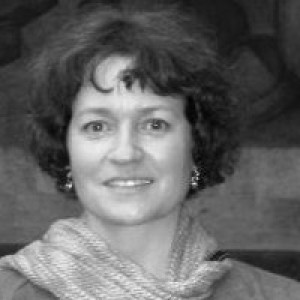
Monday Apr 15, 2019
Episode 055 - Darcia Narvaez on socialization and isolation
Monday Apr 15, 2019
Monday Apr 15, 2019
Find Darcia's writings and resources across the internet:
Resource Page at Psychology Today
Topics we discussed in this podcast:
The human need for socialization from the very beginning, and ways that goes awry in contemporary society.
Things we can do to learn some of these lessons later in life:
- Self-calming via breathing, meditation, prayer. (Does our contemporary culture of outrage stem from a lack of the ability to calm ourselves that we are meant to learn starting in infancy?)
- Build a social network. We were meant to have interaction with an extended family that spans all age ranges for proper socialization. It's not too late to play with children, talk to the elderly, interact with people at other stages of life.
- Learn new languages and interact with people in different cultures. What are their reasons for doing the things that they do?
- Spend time with nature.
- Practice going outside yourself, defusing rigid thinking and attachment to "it has to be done this way." Intelligence is a measure of flexibility as much as anything.
Bill asked about social media and our tendency to seek out those who already agree with us. Darcia noted that we need guidance on how to socialize. Up through age 30 or so, it's natural for human beings to get that kind of guidance from others. Unfortunately we get that guidance through TV and video games now.
As usual, this was the first half of our interview. More discussion and more questions than we could possibly answer next time!
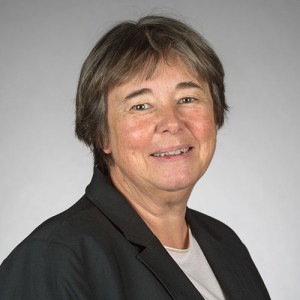
Thursday Mar 28, 2019
Bonus Episode - Patricia Bellm: Compartmentalization vs. integration
Thursday Mar 28, 2019
Thursday Mar 28, 2019
Compartmentalization by students at Notre Dame
Bill: ethics as a checklist
The Science & Religion Initiative (see Baglow & Martin interview)
The need to get the same message in the biology class and in theology class
The change in the teachers after a few days in the workshop: divisions fade out
It's a challenge having an "athletics" teacher in the program (phys ed)...
Yet there are things: doping and respect of the body
Patricia believes "you become what you eat" applies to violent video games as well
Feed yourself and your children good things instead
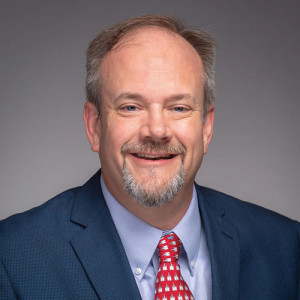
Monday Mar 25, 2019
Monday Mar 25, 2019
0:30 - McGrath Institute for Church Life: Science & Religion Initiative outreach to high school teachers to integrate science & faith
2:00 - Gulf Coast Faith Formation Conference (a good time to be away from Notre Dame)
3:00 - Summer seminars: Foundations Notre Dame, Foundations New Orleans, Capstone
4:00 - Foundations ND: lecture based, top scholars in specific disciplines, with workshops
6:00 - Foundations NO: experimental work and discussions
7:00 - Dialogue between science & theology teachers about their own specialties
8:00 - Capstone: topic-based theme & lecturers; special track for administrators; teaching practices
11:00 - Templeton Foundation study showing schools already trying to do this on their own
12:00 - The need to do this well and not engage in pseudoscience or gloss over tough questions
14:00 - ICL team making "housecalls" to individual schools
14:30 - Baglow textbook on science & faith
18:00 - Vast multiplication of interest from schools just since 2011
19:00 - Real motivations for believing faith is inconsistent with science: the need for hope [and, not made explicit, the appropriateness of hope]
20:00 - "I thought I was the only one"
21:00 - The historical and emotional impulse: rebellion against Christian hypocrisy
22:30 - Baglow makes the Fulton Sheen point: "I also hope THAT God doesn't exist!"
23:00 - The questions he wishes people would ask about God, meaning, science, etc.
24:00 - "What do you mean by 'God creates everything'"
25:00 - The nature of the discourse we encourage
26:30 - "I don't know"
27:00 - "When did science and religion enter into conflict?" - because they have not always been
28:20 - The true role of the university in integrating human wisdom
30:30 - Newman on evolution in the context of Development of Christian Doctrine

